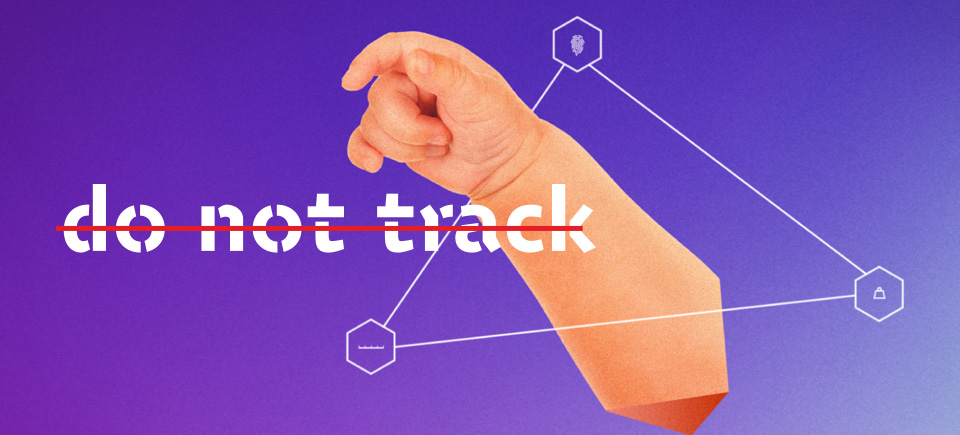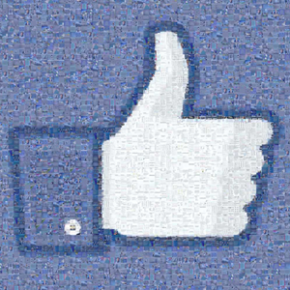
6 tips for protecting your personal information on the Web
6 tips for protecting your personal information on the Web
This is a guest post written by Do Not Track: episode 05 director Sandra Rodriguez.
Should we really be worried about everything that the Web may know about us? That depends. While participating in the large collaborative webdocumentary series Do Not Track, I developed, as did several of my colleagues, a paradoxical reaction – somewhere between curiosity to discover amazing new technologies and the paranoid desire to wrap my cell phone in tinfoil.
Discovering everything that the new Web economy knows about is disturbing. Did you know that many mobile apps access your GPS, your contacts or your calendar, even though it isn’t necessary in order for them work? (see episode 04)?
 And what about Facebook, which collects an impressive amount of personal information, whether you are a member of the platform or not (episode 03)? It’s not reassuring. Especially when we know that this information isn’t only used to target ads. Many companies say they rely on this information to predict our behaviour as an employee, spender, elector or citizen. What will this information be used for? To predict what? And what will it say about us?
And what about Facebook, which collects an impressive amount of personal information, whether you are a member of the platform or not (episode 03)? It’s not reassuring. Especially when we know that this information isn’t only used to target ads. Many companies say they rely on this information to predict our behaviour as an employee, spender, elector or citizen. What will this information be used for? To predict what? And what will it say about us?
However, it was also in collaborating on the creation of episode 05 of Do Not Track, covering Big Data, that I met a variety of researchers and entrepreneurs who use these quintillion pieces of data to rethink our roads, reorganize bus services in San Francisco or help doctors in Toronto monitor premature babies’ heartbeats. In this context, we sort of feel like sharing our information – go ahead, here’s a little piece of me; do something with it for humanity.
So. To share your information or not? The answer may lie in between the two: between living as a hermit, disconnected from any Web service (good luck) and choosing to give your digital DNA to serve for posterity sake. To properly deal with the information that you produce:
6 tips for protecting your personal info on the Web
- Develop digital hygiene. We don’t always think about it, but there is a way to not leave an information trail behind us. When you download an app, learn to not accept everything. Access to your microphone is requested? If the app is linked to voice recording, OK. Your “flashlight” app asks to access your contacts or your calendar? It’s a no.
- Also think about closing apps or functions that you aren’t using. For example, you’re lost in the city and need your geotracking? Perfect. Think about disabling it once you’ve found your way again (on Android -> Location Services menu -> Settings -> Disable. On iPhone -> Settings menu -> Privacy -> Location Services.)
- Certain tracking tools, such as Cookies, are useful for the Web to work properly. In order to figure out which sites are untrustworthy, the extension me (used in Do Not Track) not only allows you to block unwanted trackers, but categorizes them: ads, tracks useful for the Web to work, site visit analysis, etc.
- And third parties? The extension Share me not allows you to block social media widgets integrated into web pages that are visited, allowing you to prevent yourself from being tracked by Facebook, Twitter or Google+.
- Don’t block ads! It’s paradoxical, I know – if you can’t stand seeing them anymore, block them. But know that you’re only hiding them… from yourself. If you want to know how trackers spy on you, the extension Floodwatch gives you a glimpse of all the ads that were targeted to you over the past few months. It’s helpful for retracing clicks, Google searches and websites that were used to track you!
- Curious to know what image the Web has of you? Here’s a fun exercise : If you have a Google account, go to the Ads Settings. You can see if your profile matches you and you can even choose to correct it. Be careful, however: any correction given to trackers is one more piece of information… to better track you.




It’s some good method to manage them provided you are undoubtedly rich.
They have actuaply different forms of monitors with separate names
or models. https://www.nichethyself.com/groups/patek-philippe-watches-such-as-worthy-investments/
Sorry a PS…(no need to publish this comment). Just a heads up that Share Me Not said it is no longer beign maintained and the chrome store indicates it has not been updated in a year: http://sharemenot.cs.washington.edu/
Indeed, Robin, there seem to be contradicting information. On the one hand, I just installed the Share Me Not Extension on Chrome on a “test” computer and it works out fine. But then again, the http://sharemenot.cs.washington.edu/ page clearly states “Share me Not”s functionality has been incorporated into the Electronic Frontier Foundation’s Privacy Badger tool, to be found here https://www.eff.org/privacybadger
“Don’t block ads… know that you’re only hiding them” – Is this still true if you are blocking them from the hosts file? You can block a lot (not all) of ads this way. Is this not effective? Floodwatch seems to think it is given how few ads it tracks. But now I’m somewhat confused and would appreciate your insights. Thanks.
That’s an excellent question. Actually, Floodwatch allows you to track ads that are shown on your pages through time. So if you block ads, Floodwatch will only show ads that appeared on your pages (hence, those that were not blocked). Yet, what’s important to underline is that hiding ads doesn’t impede tracking of your data. You may not be receiving or seeing the ads, but your data is still being tracked, stocked and sold to third parties through algorithms that still associate your likes, page views and browsing history to categorizing “buckets”. What Floodwatch can be useful for is seeing for one self how, when and under which condition are trakers using our data to change the ads displayed. For instance – you’ve been sick and looking for information online? How did it affect the ads displayed? Your daughter graduated? Did ads suggest family trips, vacations, or offers on a new car? Etc.